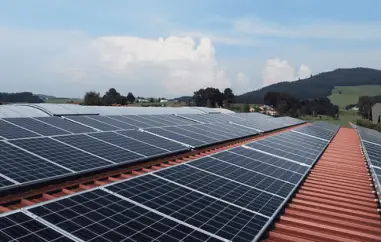Why Don't We Install More Solar Panels?
 Solar panels are widely recognized for their environmental benefits, particularly their role in reducing greenhouse gas emissions and dependency on fossil fuels. However, large-scale solar farms face several challenges, one of which is the potential increase in local temperatures.
Solar panels are widely recognized for their environmental benefits, particularly their role in reducing greenhouse gas emissions and dependency on fossil fuels. However, large-scale solar farms face several challenges, one of which is the potential increase in local temperatures.
The Heat Island Effect
Large solar panel installations can contribute to the heat island effect, where the temperature in the vicinity of the panels increases. This phenomenon occurs because solar panels absorb sunlight and convert only a portion into electricity, with the rest being converted into heat. The heat absorbed by the panels and the surrounding area can raise local temperatures, potentially impacting the environment and nearby communities.
Environmental Impact
The increased temperature can affect local flora and fauna, potentially disrupting ecosystems. In agricultural areas, higher temperatures might alter crop yields and soil conditions. Additionally, the land used for solar farms often involves clearing vegetation, which can further contribute to environmental changes.
Technological and Design Solutions
To mitigate these effects, several strategies are being explored:
- Innovative Panel Designs: Research is being conducted into more efficient solar panels that convert a higher percentage of sunlight into electricity, thus generating less heat.
- Reflective Coatings: Applying reflective coatings to solar panels can reduce heat absorption and decrease local temperatures.
- Integrated Vegetation: Incorporating vegetation around and under solar panels (agrivoltaics) can help absorb excess heat and maintain a cooler microclimate.
- Optimal Placement: Strategic placement of solar farms in less environmentally sensitive areas can minimize their impact.
Policy and Planning
Careful planning and regulatory measures are essential to balance the benefits of solar energy with its environmental impacts. Governments and organizations need to consider the local climate, land use, and ecological factors when approving and designing large solar installations.
Conclusion
While solar panels offer a clean energy alternative, addressing their environmental impact is crucial for sustainable development. Continued innovation and thoughtful planning can help maximize the benefits of solar energy while mitigating its potential drawbacks












































